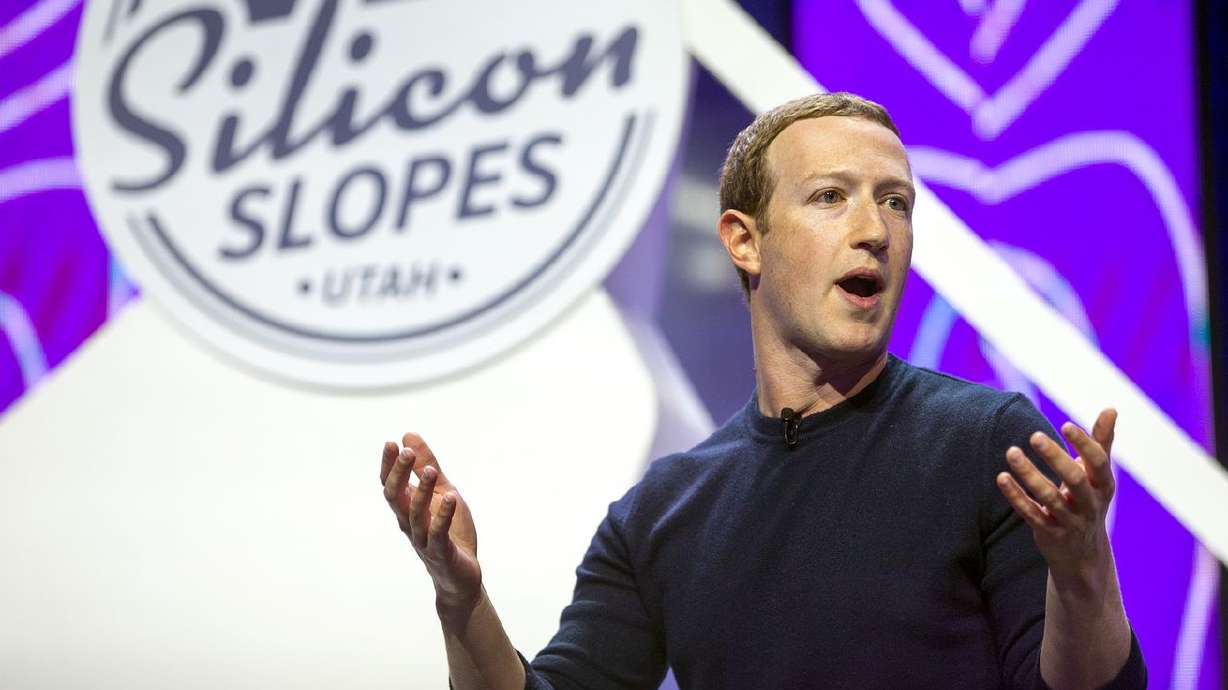Estimated read time: 5-6 minutes
This archived news story is available only for your personal, non-commercial use. Information in the story may be outdated or superseded by additional information. Reading or replaying the story in its archived form does not constitute a republication of the story.
SALT LAKE CITY — Social media behemoth Facebook announced Wednesday it has filed motions to dismiss two antitrust cases targeting the company, including one led by a group of state plaintiffs that includes Utah.
The main thrust of the states' suit and Federal Trade Commission action center on claims that Facebook acquired up-and-coming social media companies, like Instagram and WhatsApp, as an illegal tactic to suppress competition.
Facebook acquired the photo-sharing app Instagram in a $1 billion deal in 2012 and paid $19 billion for messaging service WhatsApp in 2014. Both deals were reviewed and approved by the Federal Trade Commission.
In a statement, Facebook said not only have the acquisitions had positive outcomes across the board, but that a reasonable statute of limitations has long passed on rereviewing those deals.
"Our acquisitions have been good for competition, good for advertisers and good for people," the statement read. "Our products remain popular because we constantly evolve, innovate and invest in better experiences for people against world-class competitors. We believe the government should be denied the do-over it seeks."
When the states' lawsuit was announced last December, deputy Utah attorney general and antitrust section director David Sonnenreich characterized Facebook's acquisition strategies as a "power grab" designed to eliminate future competition.
"Facebook systematically plotted to change the competitive market of social media, and its actions are a blatant profit and power grab," Sonnenreich said. "When Facebook entered the social media market, it was highly competitive and consumer privacy was paramount. Today Facebook dominates the social media market because it bought or crushed the competition, and consumer privacy is no longer prioritized by Facebook.
"This lawsuit seeks to restore competition to the market for social media. Consumers win when companies compete; that is true even when services appear to be free but consumers are 'paying' with their data."
Our products remain popular because we constantly evolve, innovate and invest in better experiences for people against world-class competitors. We believe the government should be denied the do-over it seeks.
–Facebook statement
On Thursday, Utah Attorney General Sean Reyes responded with a brief prepared statement on news of Facebook's motion to dismiss.
"Facebook is wrong on the law and wrong on our complaint," Reyes said. "We are confident in our case."
Besides challenging the idea that the government can rescind former approval of its acquisitions, Facebook argues that the state plaintiffs don't have standing to bring a complaint and that no evidence exists that shows consumers experienced harm from the deals, a basic tenet of U.S. antitrust law.
"The complaint filed by the state attorneys general fails on multiple grounds," a Facebook statement reads. "It does not and cannot assert that their citizens paid higher prices, that output was reduced, or that any objective measure of quality declined as a result of Facebook's challenged actions.
"Instead, the states, even more explicitly than the FTC, ground their lawsuit in public policy concerns — digital privacy, for example — that are not antitrust law concerns. And, like the (Federal Trade Commission), the states focus their attacks on what Facebook did long ago. Their afterthought claims are brought by the wrong parties, are untimely and are empty as a matter of antitrust law."
Utah Republican Sen. Mike Lee has been a vocal critic of the conduct of big U.S. tech companies in general, and Facebook specifically, and last month said he was ready to lead his party's charge on federal efforts to curb their "monopolistic powers."
Related:
"As the leading Republican on the Senate Antitrust Subcommittee for the last decade, I have repeatedly warned of the dangers posed by Big Tech," Lee said. "But despite those warnings, our antitrust enforcers were asleep at the wheel while Silicon Valley transformed from a center of innovation into a center of acquisition.
"Instead of competing to be the next Google, Apple, Facebook or Amazon, today's tech startups are pushed by their private-equity backers to sell out to Google, Apple, Facebook or Amazon."
Lee has also claimed social media companies are inappropriately censoring conservative voices and content and also brought up his concerns about Big Tech in a virtual town hall on Wednesday and again at a U.S. Senate antitrust hearing on Thursday. Lee is the ranking member on the Senate Judiciary Committee's Subcommittee on Competition Policy, Antitrust, and Consumer Rights.
"There are companies like Google, Facebook and Twitter that are very quick to point out how much innovation they've given to society," Lee said Thursday. "How they've revolutionized the sharing of information and revolutionized the way people communicate throughout the entire world.
"I wonder sometimes if this is an unmitigated good."
Lee then went on to cite examples he believes are evidence of Big Tech's malfeasances, including that "Facebook social media products fuel anxiety and depression among teenagers."
The Utah Attorney General's Office is currently involved in three lawsuits targeting various alleged instances of anticompetitive conduct by Google and Facebook.
All three suits were filed last year and are still in the early stages of legal processes expected to take years to complete. In addition to the Facebook suit, those cases include:
- Texas vs. Google, which will explore whether the search giant is unfairly controlling both the buy-side and sell-side of the online display advertising ecosystem.
- In Colorado v. Google, the legal question is whether Google unfairly directs searchers to interests it owns or earns profits from rather than independent third-party service providers as well as the legality of contracts the company has with wireless service providers that allegedly keep Google's search engine competitors off of prominent placement on cellphones and internet browsers.











